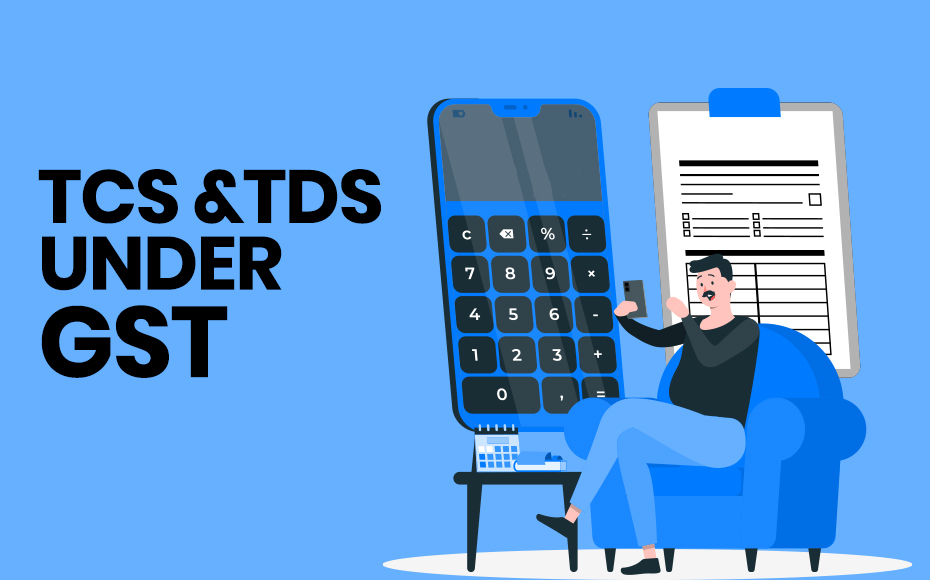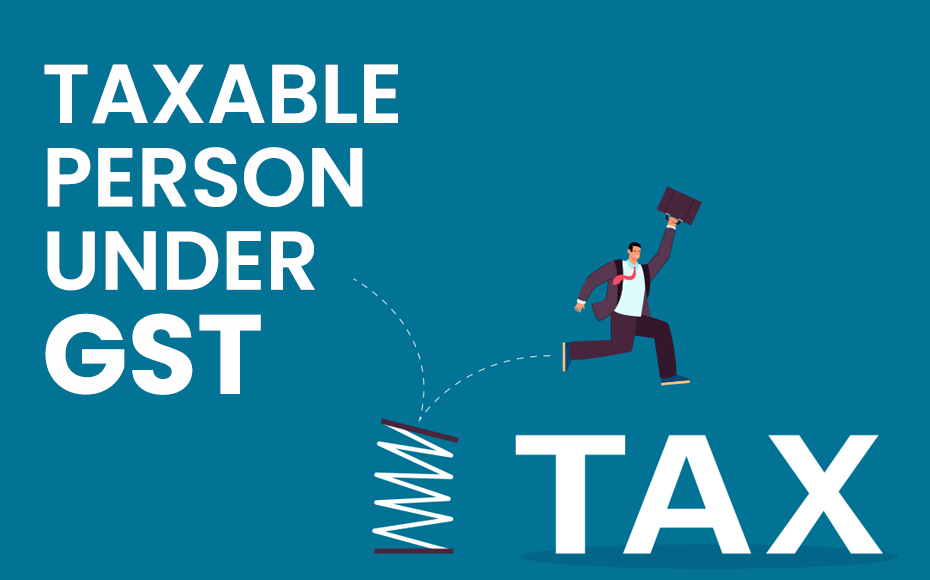

January 10, 2022

TDS under GST is the tax deducted while making payments by the buyer of goods and services like government departments under a business contract. In the case of TCS, it refers to the tax collected by the eCommerce operators as a supplier supplies goods or services via its websites and the payment for it collected by the eCommerce operator.
The rate of TDS to be deducted under the GST is 2% (1% CGST+1% SGST or 2% IGST) on the payments made to the seller of taxable goods or services.
In case the total value of supply under a contract exceeds Rs 2.5 lakhs then the person or the organization would be liable to deduct TDS.
The deductor has to make the payment of TDS by the 10th day of the next month in form GSTR-7. For instance, the ‘A’ department of the Central Government deducts TDS @2% from ‘B’ on 5 February 2021, then it has to make payment by 10 March 2021.
The Indian government, on average, permits more than 10,000 civil contracts every year throughout the country. The contract for the construction and repairing of the national highways average more than Rs.100 crores.
These contracts are taken up by big construction companies and then sub-contracted to smaller companies and then again further sub-contracted to another small one. This loop will encounter issues owing to GST and in particular due to the TDS liability.
The government is required to deduct TDS from the contractor which could ensure tax compliance by the contractors and all the other sub-contractors. At present, many small civil and labor contractors are not compliant with the tax regime. As per GST, it will be inevitable for them to register and comply with the tax regime.
For instance, M/s XXX Ltd. got a contract for repair work on a 1KM road from the government for Rs 15 lakhs. The company outsources road work to M/s YYY Ltd. which is again outsourcing it to a small civil or labor contractor M/s ZZZ Associates.
Earlier, M/s ZZZ Associates need not register under service tax and VAT but now he should register under GST to make a claim for ITC. The purpose of the added TDS provision under GST (Section 51 of the CGST Act) is to ensure tax compliance by the unorganized sectors like the construction industry.
TDS rule ensures to achieve transparency in the functioning of government contracts and tax compliance.
Section 52 has been added under the CGST law for all e-commerce aggregators to bring TCS in GST. e-Commerce aggregators are held responsible under the GST law for deducting and depositing tax at the rate of 1% from each transaction.
Any dealers or traders selling goods or services online would get the payment after a deduction of 1% tax (0.5% CGST+ 0.5% SGST or 1% IGST).
It is a major change that has enhanced the compliance and administration cost for online aggregators such as Flipkart, Snapdeal, Amazon, etc. They are required to deposit the tax deducted by the 10th day of the next month in form GSTR 8.
All the traders or dealers selling goods or services online are required to get registered under GST to make a claim for the tax deducted by e-commerce operators, even if their turnover is less than the limit notified for GST registration.
For instance, Mr. Ramesh is a trader who sells his ready-made apparells online on Flipkart. He receives an order for Rs 15,000, inclusive of tax and commission. Flipkart charges a commission of Rs 500. Besides, there is a return worth Rs 2,000. Flipkart would, therefore, be required to deduct 1% tax (TCS) on the amount, excluding sales returns (Rs 2,000), but including the money paid as a commission (Rs 500) and GST. Flipkart would thus be deducting TCS in GST at 1% on net sales value.
Online eCommerce operators like Flipkart, Amazon, Snapdeal, etc had to make modifications in their online payment process and administration or finance department to put in place the TCS in GST.
They have to register under GST in every state in which they operate as an eCommerce operator. The ERP systems have to be well integrated to apply the GST provisions in daily businesses smoothly.
Moreover, the sellers have to mandatorily register under GST for operating on e-commerce platforms. the working capital of these sellers supplying through an e-commerce operator would be blocked till they file their return and make a claim for the excess taxes paid.
Both TDS and TCS have many benefits. Both were introduced by the government to ensure a stringent hold on tax evaders. Sections 51 and 52 of the CGST Act deal with the provisions of TDS and TCS under GST.
From a deductee or supplier’s standpoint, there will have an automatic reflection in his electronic ledger as the deductor files his/her returns under the TDS system. The deductee could make a claim for credit in his electronic cash ledger of this tax deducted and utilize it for payments of other taxes, as per his convenience.
TDS helps to ensure that the unorganized sectors comply with the tax provisions and frauds are checked.
In addition, TCS enforces a strict regulatory mechanism on the online sellers, keeps tabs on the transactions, and ensures the deposit of tax with the government on time.




